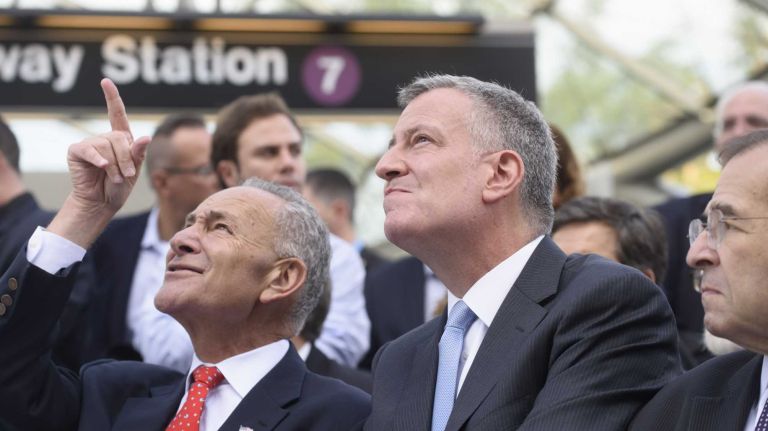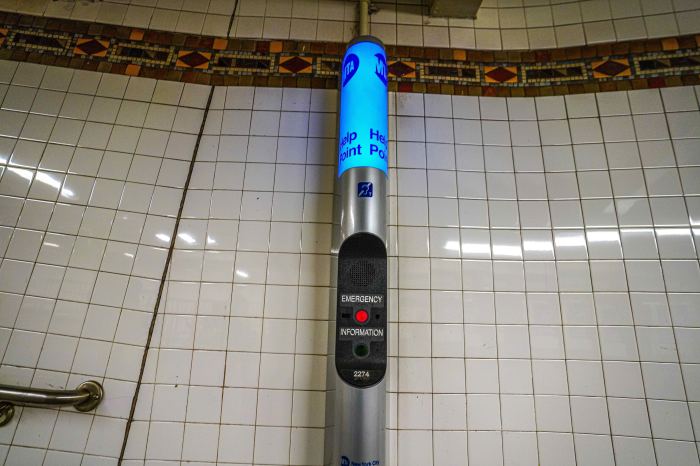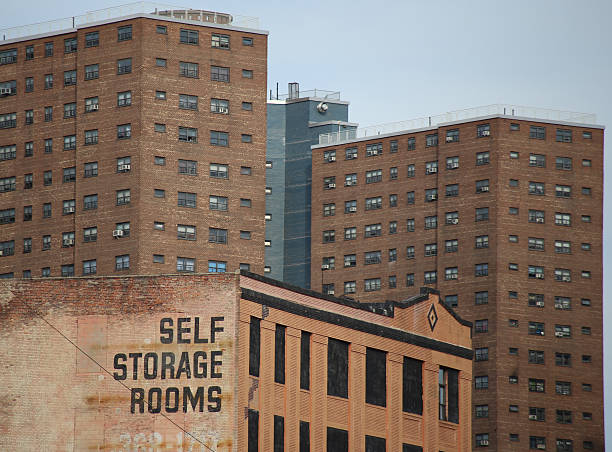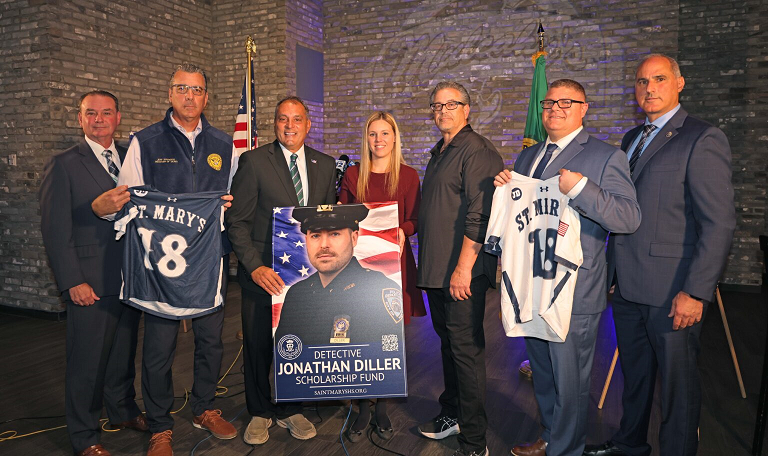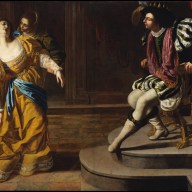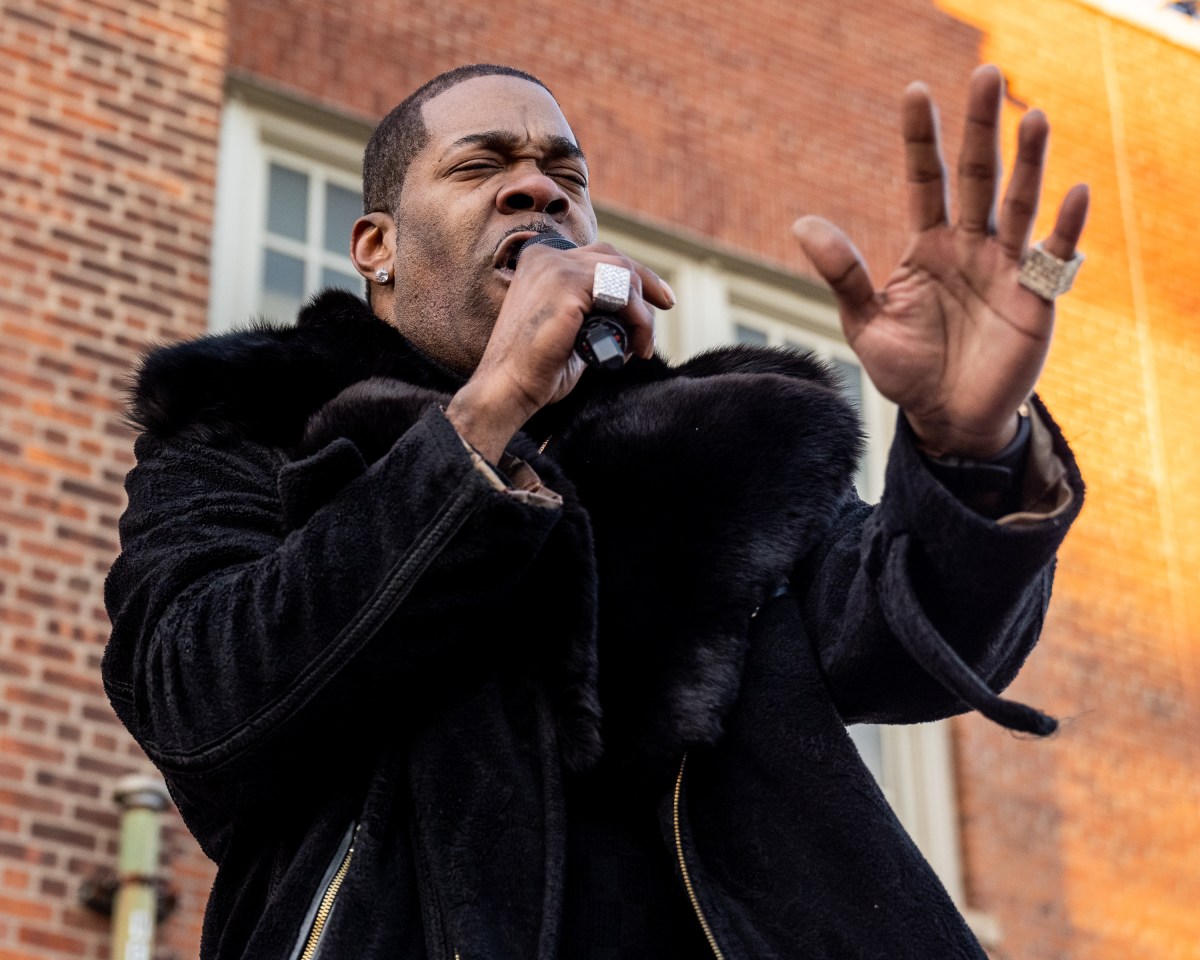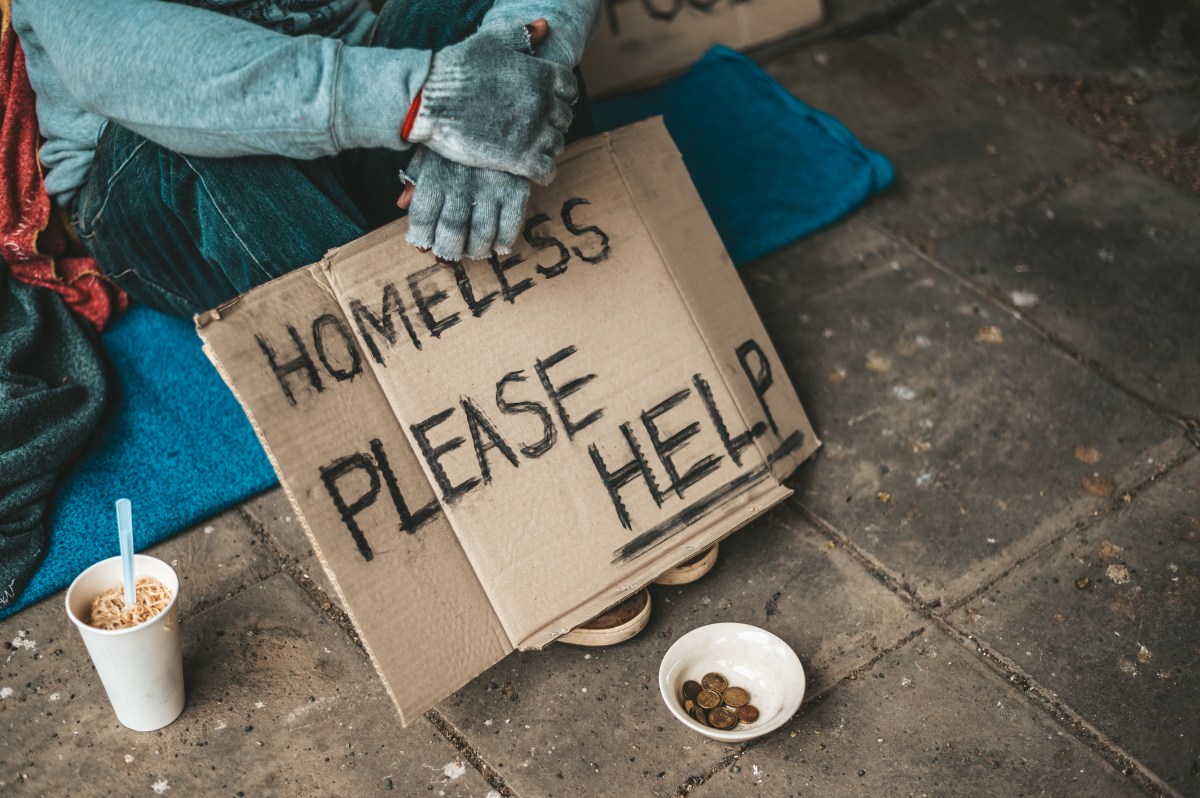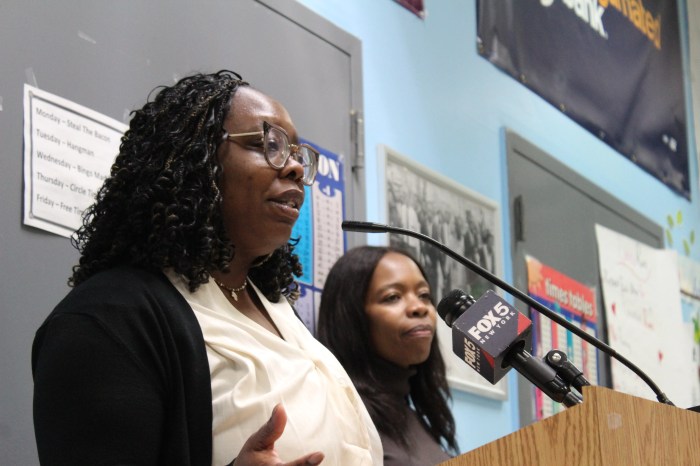
Tension among Mayor Bill de Blasio, the MTA, and the subway workers’ union spiked further Sunday during the opening of the first city-funded subway station in more than 60 years. The ceremony also illustrated how politicized Thursday’s subway derailment in Brooklyn that injured two people has become.
During the opening ceremony for the $2.4 billion station, the head of the state-run MTA pushed the mayor on the deficit in the $26.8 billion capital plan, which funds big projects like the Second Avenue Subway.
“Mayor de Blasio, we appreciate your support of this project, but we need your help,” said MTA chairman Thomas Prendergast.
“Without the $3.2 billion that we need from the city, we will be unable to meet the capital needs that we need desperately for the program … We don’t want to do that, because we don’t want to put projects on hold. We don’t want to delay them, and we need to move.”
De Blasio then said the city and its residents pay for much of the MTA already — and that the federal government needs to pony up more transportation funding.
“I think it’s very important we remember the facts. The city of New York and the people of New York are the backbone of the funding of so much of the MTA,” he said.
“We pay 73% of the MTA’s budget through the city government’s contribution, through the fares our people pay, the tolls our people pay, the taxes our people pay. We are doing our share.”
MTA spokesman Adam Lisberg shot down de Blasio’s take on the city’s support.
“His math is wrong. It’s a way of saying that the city shouldn’t contribute its own money to the MTA because people who live in the city pay fares to ride the subway,” he said. “It’s fuzzy math, and like anything else fuzzy, it obscures the real picture.”
A bench wall, which is a catwalk that runs along the tracks and is used by transit workers when making repairs, collapsed on Thursday and derailed a G train, according to preliminary findings. Two riders were hospitalized. Prendergast ripped the city on Friday over the capital plan deficit — noting that the next plan will fund repairs for structures like bench walls.
“The MTA is barred by law from spending a single dollar on new capital projects until the state Capital Program Review Board approves our program — which can only happen when the City agrees to pay its fair share,” he said in a statement. “I am tired of writing letters to city officials that result only in vague calls for more conversations.”
The Transport Workers Union Local 100 — which has often clashed with the MTA — was on the same page as the chairman during the opening.
“The entire subway system, and the bus system, is in dire need of repair,” said its president John Samuelsen. “It’s difficult for me to comprehend how politicians want to constantly talk about properly funding mass transportation when bench walls are collapsing and knocking trains off the track … The debate needs to stop.”
Tension between Gov. Andrew Cuomo, who is ultimately in charge of the MTA, and de Blasio has been a hallmark of the mayor’s first term. The MTA has asked the city to significantly increase how much it gives the MTA to its capital plan. The state has boosted its contribution, but not said where the money will come from.
Mayor’s office spokeswoman Amy Spitalnick said the city met the MTA’s original funding request in the spring, and that the MTA turned around the same day to ask for billions more.
“New York City taxpayers already provide the vast majority — three-quarters — of the MTA’s operating funds. For the last 25 years, the city has put in more than twice as much for the MTA capital program as the state,” she said.
Prendergast spoke further Sunday about his frustration over the capital plan following the ceremony.
“There are stations in this system that need repair. There are bench walls that need repair,” he said.
“We’ve got to go at it until we get it resolved…The hardest yard is the last yard you got to go.”



